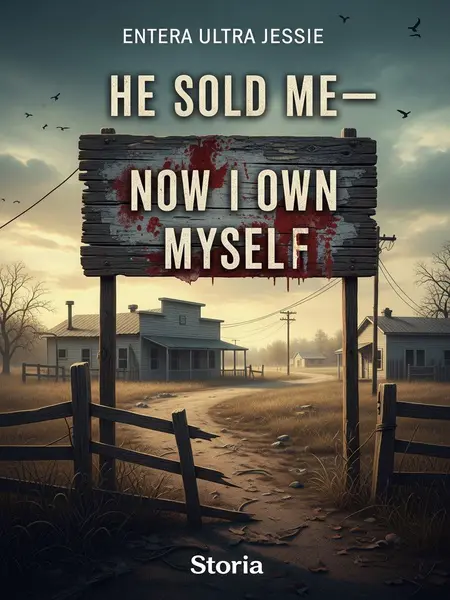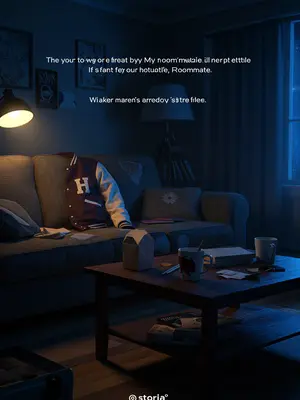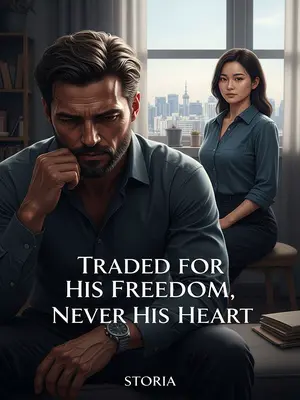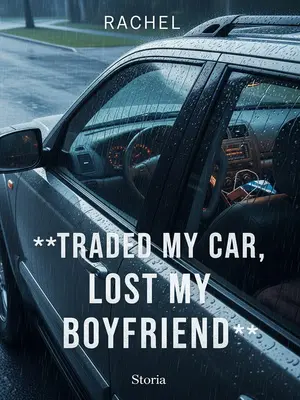Chapter 2: Hope, Hunger, and a Brother's Birth
She wouldn’t meet my gaze. Instead, she turned away, clutching her stomach as if she could hold onto what she’d lost. In that moment, I realized I was alone in this house, even with people all around me. Alone, always.
After that, things got even worse for me. Even getting enough to eat became a problem.
The fridge was always empty, and the pantry held nothing but dust and a few cans of beans. I learned to stretch a meal, to make a slice of bread last all day. Hunger became a familiar ache, like a shadow I couldn’t shake. Some nights, I’d fall asleep with my stomach growling.
Every day, I cut hay, fed pigs, washed clothes, cooked, and at night, took care of my pregnant mom and my dad, who was usually drunk and puking.
Sometimes, I’d sneak out to the porch just to breathe, the cold air burning my lungs. I’d stare at the moon and wonder if there was a place where girls like me could just be kids. Just breathe.
Kids my age in Maple Heights had long been going to school. I didn't even dare mention wanting to go. Instead, I quietly did odd jobs for neighbors to earn a little money, which I hid by Penny's pen.
I’d watch the yellow school bus rumble down the gravel road every morning, the kids inside waving and laughing. I’d press my nose to the window and dream about sitting with them, books in my lap, a lunchbox in my hand. But dreams didn’t feed pigs, so I kept my head down and worked.
Penny was a pig. My only real friend, honestly. I couldn't even count how many piglets she'd had.
She was the one who listened when nobody else did. I’d scratch her behind the ears and tell her my secrets, knowing she’d never judge me. Sometimes I wondered if she understood more than the people in my house ever did.
Looking at her and my mom, I secretly swore that once I had enough money, I'd never come back.
I’d lie awake at night, counting the crumpled bills I’d hidden in a coffee can. Each dollar was a ticket out, a promise to myself that one day, I’d be free.
I'd already picked my destination. When I went up the ridge to cut hay, I'd once climbed over to the other side and seen the city lights of Duluth. That was where I wanted to go.
Those lights sparkled in the distance, brighter than any star. I imagined myself walking those city streets, invisible in the crowd, nobody knowing where I came from or what I’d survived.
But before I could save enough, my mom got pregnant again.
I felt dread settle in my gut. Another round of hope, another round of disappointment. I knew what was coming, but I kept my mouth shut and waited.
This time, when they came back from the hospital in Duluth, they didn't yell at me and even brought me a piece of red flannel.
It was the first gift I’d ever gotten from them. I held the soft fabric in my hands, not sure if I should be grateful or suspicious. My fingers ran over it, feeling the scratchy warmth.
My mom happily measured it against me, saying it would look nice if she sewed me a dress.
She smiled in a way I hadn’t seen in years, humming as she pinned the cloth to my shoulders. For a moment, I almost believed things could be different.
After that, every day when I came home, I'd hear my dad bragging to the neighbors, saying his wife was pregnant with a boy, the baby was healthy, and he was finally going to have a big, strong son.
He’d stand out on the porch, chest puffed out, waving his arms like a preacher. The neighbors would nod, offering congratulations, and I’d watch from the kitchen window, invisible as ever.
I felt uneasy.
Something about his happiness made my skin crawl. I knew it wouldn’t last, and when it ended, I’d be the one to pay.
My dad's happiness lasted until my mom gave birth, and his big, strong son was born.
The house was filled with laughter for the first time I could remember. My mom glowed, and my dad even bought a cheap bottle of champagne to celebrate. For a second, I wondered if maybe, just maybe, things would change.
But soon after, he started frowning again.
The bills started piling up, and the weight of responsibility crept back into his shoulders. The laughter faded, replaced by the same old anger.
The hospital bills in Duluth were too expensive. After a week, he couldn't pay anymore and urged my mom to go home.
He couldn't even scrape together bus fare, and when they left, he only took his week-old son.
My mom and I were left at the station. Only three days later did my Uncle Mike, who did odd jobs in Duluth, give us a ride home.
We sat on the hard plastic seats, my mom rocking back and forth, clutching an empty baby blanket. I stared at the vending machine, wishing I had a dollar for a Coke. When Uncle Mike finally showed up, I felt relief and shame in equal measure.
While I was gone, Penny had gone three days without food and was squealing from hunger in her pen.
Her cries echoed through the yard, desperate and sharp. I rushed to her, my hands shaking as I tossed hay into her trough. She pressed her snout into my palm, forgiving me instantly.
I cut hay and fed her. Looking up, I saw my dad bring back a Walmart bag with two pounds of pork shoulder.
"Jessie!"
He was in a good mood for once and didn't yell. He called my name with a smile, shaking the meat in his hand.
Look what I brought you!
He held the bag out like a prize, grinning from ear to ear. I’d never seen him so pleased with himself.
I dried my hands, stunned, and stared at him in confusion.
It didn’t make sense. He’d never brought me anything before—not even on my birthday. I waited for the catch.
He didn't say anything else, just hummed a country tune and went to find my mom.
The melody drifted through the house, sweet and strange. I watched him go, the plastic bag swinging at his side.













